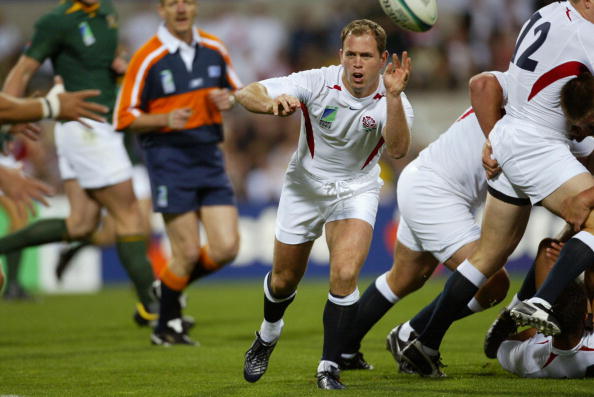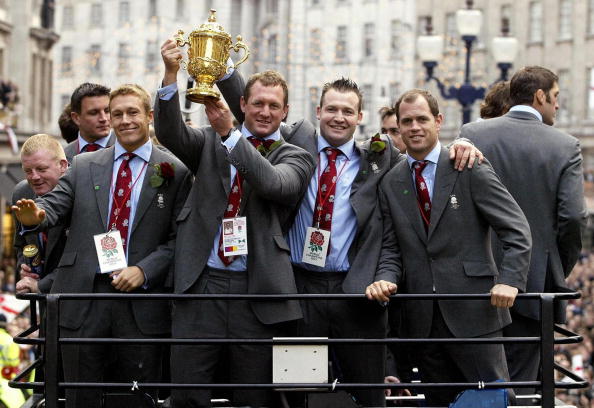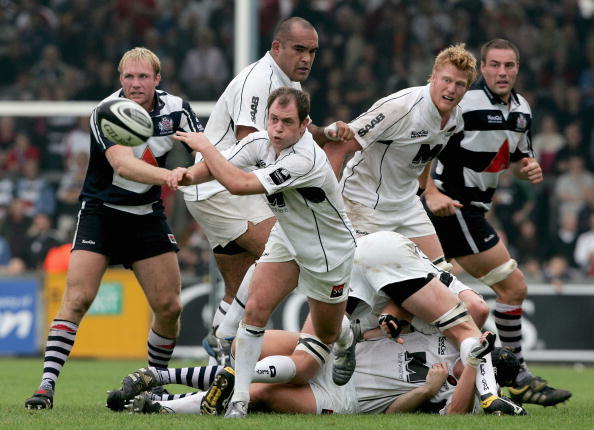‘I was suffering with OCD, which was horrific’: Former England scrum-half Kyran Bracken opens up over his mental health problems

Kyran Bracken played professional rugby for 14 years. As a scrum-half he won 51 caps for England and was part of the famous World Cup-winning squad of 2003.
That much is well documented. What wasn’t known, until now, was that he has struggled with mental health problems. But 13 years on from his retirement, Bracken has come forward to tell his story in the hope of starting a dialogue about what he feels is a taboo subject in rugby.
“I feel a bit weak for having never said anything,” Bracken tells City A.M. “I feel that the reason for never speaking was the taboo and the admission of weakness.
Read more: Why the refereeing allocation might favour Australia in England’s quarter-final
“As the years go by, you always think: ‘I wish I was brave enough to tell everyone my story’. It’s got to the stage where my kids are growing up and I haven’t told them.
“I should say that someone who has played for their country, won a World Cup, won Dancing on Ice and done all these nice things can struggle as well.”
Struggling to sleep
It all started with adrenaline rushes. Not just where you might expect them – on the pitch – but throughout days off. He started to have bouts of nausea. Then difficulty sleeping. Bracken began training after just a few hours of sleep as his symptoms spiralled into what he now knows as obsessive-compulsive disorder (OCD).

“I was suffering from OCD, which was horrific,” he says. “It was only when I started struggling to sleep and creating sleeping rituals to get to sleep, taking sleeping tablets and going to the toilet all night, that suddenly the OCD became a controlling factor over everything. I didn’t know it was OCD at the time, but suddenly it started with very invasive thoughts and became very weird. That was the tail end, when I was at my worst.
“A few years before that, the signs were coming. If I’d seen the right people they probably would have said: ‘You’re suffering from anxiety and before it gets any worse you need to get medication and get help, CBT (cognitive behavioural therapy)’. But I was treating the symptoms more than anything.”
Isolated and embarrassed
Bracken felt isolated and embarrassed, unable to share his struggles with his team-mates and coaches because he thought they would be taken as a sign of weakness.
“It was the World Cup year, 2003, when all the pressure was building up,” he explains. “Would I be fit? I had a bad back and once the sleep unfolded, taking sleeping tablets, being all over the place, I found it really hard to cope.”

Bracken received help through the Rugby Players’ Association, was prescribed medication as well as undergoing CBT and counselling, but his secret stayed under wraps due to the macho culture of rugby.
“You look at the guys who go out onto a rugby pitch: they strap everything up, it’s gladiator time,” he says. “No matter what I’m going through, I’m going to give my best and dominate you. It’s about competing against all the pain. You’re going to dominate and you’re going to win. So any admission of pain or weakness is something you would never be used to sharing.”
Coping better
Things are improving. Bracken says “one or two players have phoned me suffering with the same sort of thing”, while 10 per cent of Premiership players phone the RPA’s confidential helpline to discuss mental problems each year.
Bracken estimates that he struggled with OCD for 10 years – five while playing and five post-retirement – but now, aged 47 and with his timber frame company, speaking arrangements and coaching at St Albans School to keep him busy instead of playing, he is coping better.

“As a rugby player, you always want the quick fix,” he says. “You think: bandage it up, strap it up. But when it comes to OCD you need to be patient and try different things to alleviate the stress that it brings.
“It’s about retraining the mind and accepting those intrusive thoughts and trying to break the routines and rituals of trying to sleep and going to the toilet.
“There’s no magic wand – it takes a long time to get it right. It is probably one of the hardest disorders to treat but it is possible to get better.”
Main image credit: Getty Images